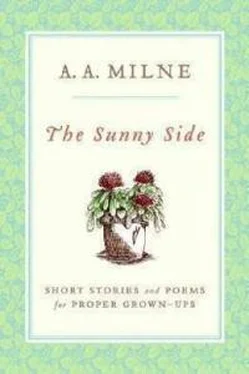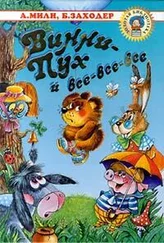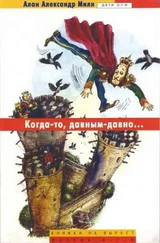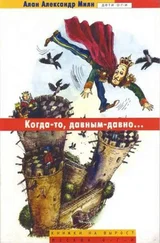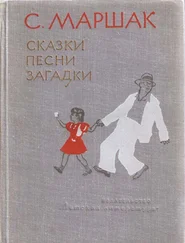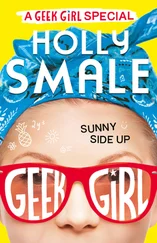Perhaps I have not got it quite right, for I have had an eventful week since then; or perhaps Herbert didn't get it quite right; or perhaps the girl with the meringue in her hair didn't get it quite right; but anyhow, that was the idea of it.
"And the answer," said Herbert, "ought to be 'four cows,' but I keep on making it 'eight and tuppence.' Just have a shot at it, there's a good fellow. I promised the girl, you know."
I sat down, worked it out hastily on the back of an envelope, and made it a yard and a half.
"No," said Herbert; "I know it's 'four cows,' but I can't get it."
"Sorry," I said, "how stupid of me; I left out the table–money."
I did it hastily again and made it three minutes twenty–five seconds.
"It is difficult, isn't it?" said Herbert. "I thought, as you used to be mathematical and as I'd promised the girl—"
"Wait a moment," I said, still busy with my envelope. "I forgot the subaltern. Ah, that's right. The answer is a hundred and twenty–five men…. No, that's wrong—I never doubled the half–crown. Er—oh, look here, Herbert, I'm rather busy this morning. I'll send it to you."
"Right," said Herbert. "I know I can depend on you, because you're mathematical." And he opened the door for me.
I had meant to do a very important piece of work that day, but I couldn't get my mind off Herbert's wretched problem. Happening to see Carey at teatime, I mentioned it to him.
"Ah," said Carey profoundly. "H'm. Have you tried it with an ' x '?"
"Of course."
"Yes, it looks as though it wants a bit of an ' x ' somewhere. You stick to it with an ' x ' and you ought to do it. Let ' x ' be the subaltern—that's the way. I say, I didn't know you were interested in problems."
"Well—"
"Because I've got rather a tricky chess problem here I can't do." He produced his pocket chess–board. "White mates in four moves."
I looked at it carelessly. Black had only left himself with a Pawn and a King, while White had a Queen and a couple of Knights about. Now, I know very little about chess, but I do understand the theory of chess problems.
"Have you tried letting the Queen be taken by Black's pawn, then sacrificing the Knights, and finally mating him with the King alone?"
"Yes," said Carey.
Then I was baffled. If one can't solve a chess problem by starting off with the most unlikely–looking thing on the board, one can't solve it at all. However, I copied down the position and said I'd glance at it…. At eleven that night I rose from my glance, decided that Herbert's problem was the more immediately pressing, and took it to bed with me.
I was lunching with William next day, and I told him about the subaltern. He dashed at it lightheartedly and made the answer seventeen.
"Seventeen what?" I said.
"Well, whatever we're talking about. I think you'll find it's seventeen all right. But look here, my son, here's a golf problem for you. A is playing B. At the fifth hole A falls off the tee into a pond—"
I forget how it went on.
When I got home to dinner, after a hard day with the subaltern, I found a letter from Norah waiting for me.
"I hear from Mr. Carey," she wrote, "that you're keen on problems. Here's one I have cut out of our local paper. Do have a shot at it. The answer ought to be eight miles an hour."
Luckily, however, she forgot to enclose the problem. For by this time, what with Herbert's subaltern, Carey's pawn, and a cistern left me by an uncle who was dining with us that night, I had more than enough to distract me.
And so the business has gone on. The news that I am preparing a collection of interesting and tricky problems for a new "Encyclopaedia" has got about among my friends. Everybody who writes to me tells me of a relation of his who has been shearing sheep or rowing against the stream or dealing himself four aces. People who come to tea borrow a box of wooden matches and beg me to remove one match and leave a perfect square. I am asked to do absurd things with pennies….
Meanwhile Herbert has forgotten both the problem and the girl. Three evenings later he shared his Hollandaise sauce with somebody in yellow (as luck would have it) and she changed the subject by wondering if he read Dickens. He is now going manfully through "Bleak House"—a chapter a night—and when he came to visit me to–day he asked me if I had ever heard of the man.
However, I was not angry with him, for I had just made it come to "three cows." It is a cow short, but it is nearer than I have ever been before, and I think I shall leave it at that. Indeed, both the doctor and the nurse say that I had better leave it at that.
To the Death
(In the Twentieth Century Manner)
"Cauliflower!" shrieked Gaspard Volauvent across the little table in the estaminet . His face bristled with rage.
"Serpent!" replied Jacques Rissole, bristling with equal dexterity.
The two stout little men glared ferociously at each other. Then Jacques picked up his glass and poured the wine of the country over his friend's head.
"Drown, serpent!" he said magnificently. He beckoned to the waiter. "Another bottle," he said. "My friend has drunk all this."
Gaspard removed the wine from his whiskers with the local paper and leant over the table towards Jacques.
"This must be wiped out in blood," he said slowly. "You understand?"
"Perfectly," replied the other. "The only question is whose."
"Name your weapons," said Gaspard Volauvent grandly.
"Aeroplanes," replied Jacques Rissole after a moment's thought.
"Bah! I cannot fly."
"Then I win," said Jacques simply.
The other looked at him in astonishment.
"What! You fly?"
"No; but I can learn."
"Then I will learn too," said Gaspard with dignity. "We meet—in six months?"
"Good." Jacques pointed to the ceiling. "Say three thousand feet up."
"Three thousand four hundred," said Gaspard for the sake of disagreeing.
"After all, that is for our seconds to arrange. My friend Epinard of the Roullens Aerodrome will act for me. He will also instruct me how to bring serpents to the ground."
"With the idea of cleansing the sky of cauliflowers," said Gaspard, "I shall proceed to the flying–ground at Dormancourt; Blanchaille, the instructor there, will receive your friend."
He bowed and walked out.
Details were soon settled. On a date six months ahead the two combatants would meet three thousand two hundred feet above the little town in which they lived, and fight to the death. In the event of both crashing, the one who crashed last would be deemed the victor. It was Gaspard's second who insisted on this clause; Gaspard himself felt that it did not matter greatly.
The first month of instruction went by. At the end of it Jacques Rissole had only one hope. It was that when he crashed he should crash on some of Gaspard's family. Gaspard had no hope, but one consolation. It was that no crash could involve his stomach, which he invariably left behind him as soon as the aeroplane rose.
At the end of the second month Gaspard wrote to Jacques.
"My friend," he wrote, "the hatred of you which I nurse in my bosom, and which fills me with the desire to purge you from the sky, is in danger of being transferred to my instructor. Let us therefore meet and renew our enmity."
Jacques Rissole wrote back to Gaspard.
"My enemy," he wrote, "there is nobody in the whole of the Roullens Aerodrome whom I do not detest with a detestation beside which my hatred for you seems as maudlin adoration. This is notwithstanding the fact that I make the most marvellous progress in the art of flying. It is merely something in their faces which annoys me. Let me therefore see yours again, in the hope that it will make me think more kindly of theirs."
Читать дальше
